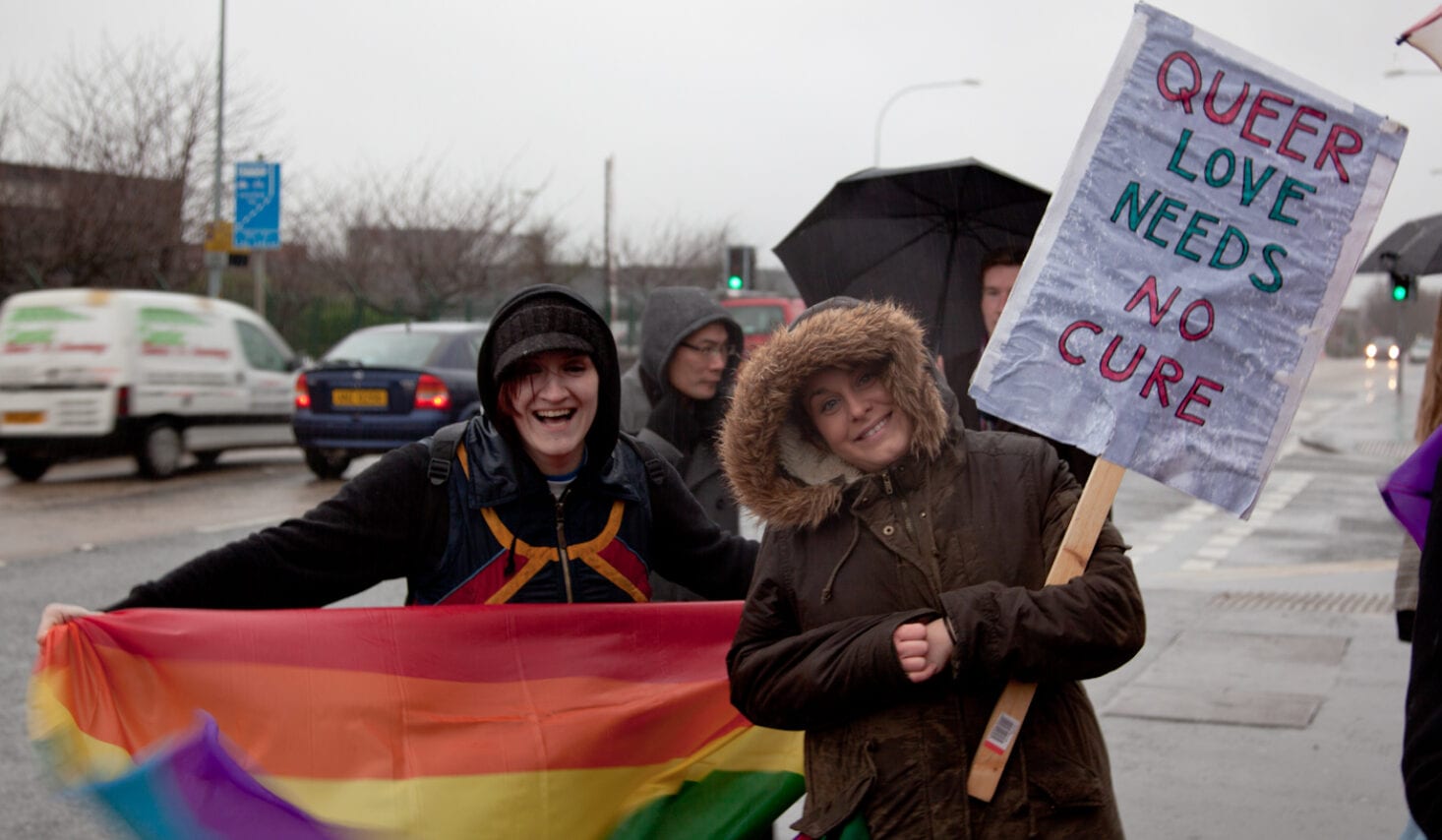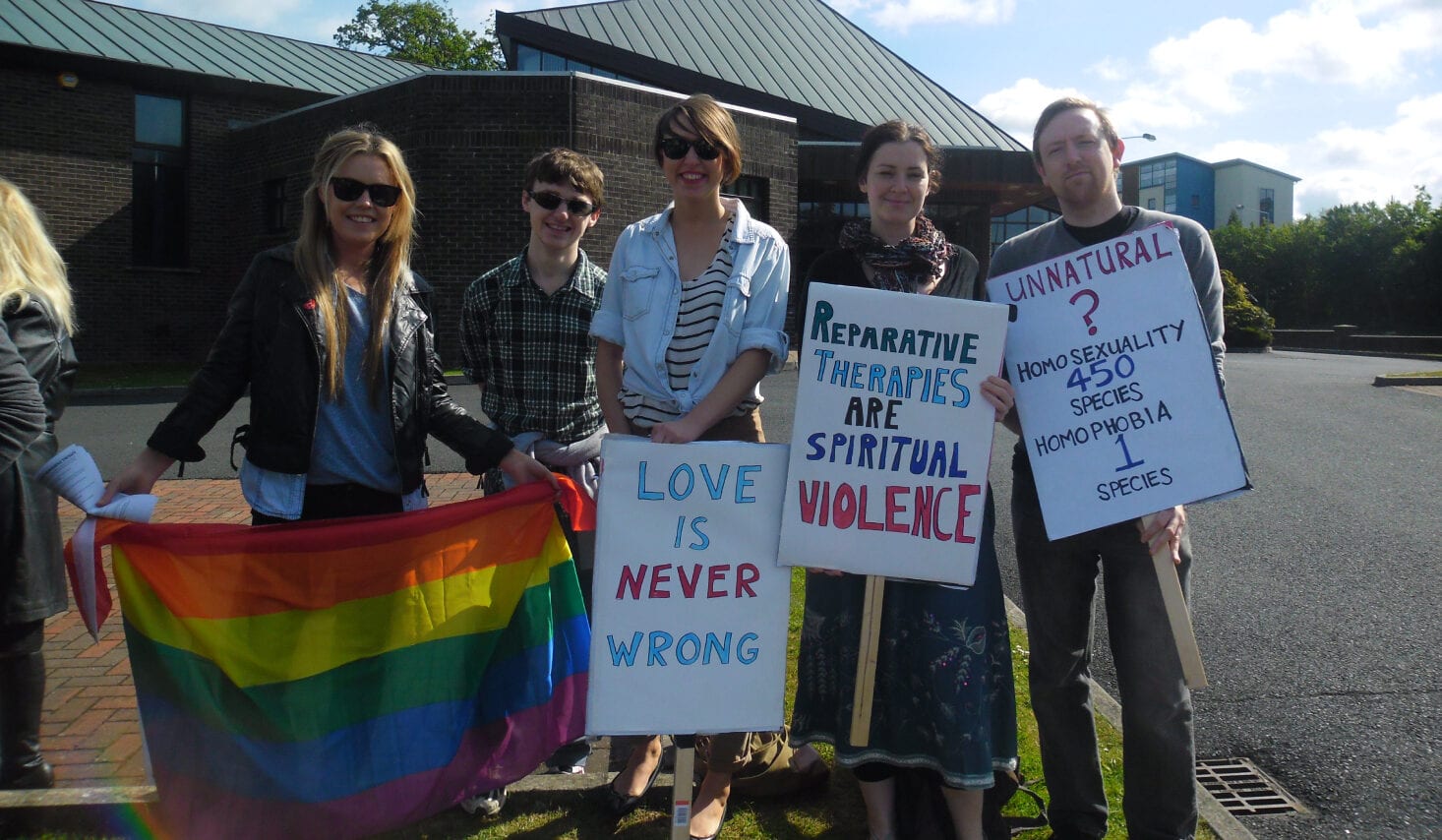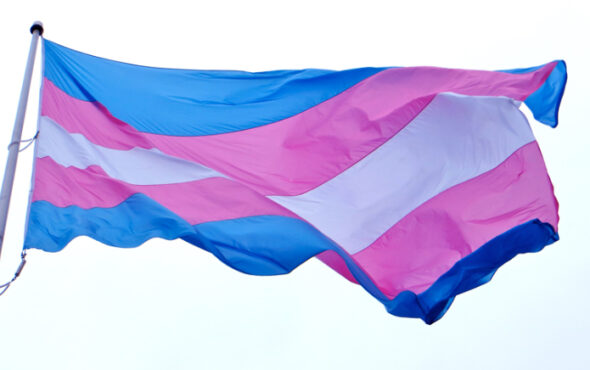
The campaign to ban so-called “conversion therapy” has gained momentum across the United Kingdom. It was fascinating to interview Matt Hyndman, co-founder of Ban Conversion Therapy, leading gay Evangelical Christian and LGBTQ+ activist Jayne Ozanne about “conversion therapy” in April and Jayne a second time about the proposed consultation on “conversion therapy”, announced in the Queen’s Speech on 11 May. I was keen to learn about the distinctive Northern Irish nuances in the campaign to ban “conversion therapy” and it was a pleasure speaking to John O’Doherty from The Rainbow Project, based in Northern Ireland.
I started by asking John for a view of where the ban was at?
In Northern Ireland we had a very successful debate in the Northern Ireland Assembly, brought forward by the Ulster Unionists, calling on Deirdre Hargey, the Minister for Communities, to bring forward legislation that would ban “conversion therapy” and that received substantial support in the Northern Ireland Assembly. The commitment has been given by the Assembly – we know a majority of our Members of the Legislative Assembly support a ban on “conversion therapy”. What we need to see now is the Minister for Communities bringing forward a process which would result in legislation to ban “conversion therapy” practices.
A number of the religious organisations campaigning against a ban on “conversion therapy” are based in Northern Ireland. Is this an argument about “faith vs LGBTQ+ rights”?
Certainly that’s the position and direction taken by a lot of the leading faith groups here in Northern Ireland. The opposition to “conversion therapy” has been very heavily based here in Northern Ireland. Organisations, like the Evangelical Alliance, are based here in Northern Ireland. Core Issues Trust – which is one of the few practitioners of “conversion therapy” – still exists in Northern Ireland. A lot of the opposition is actually coming from Northern Ireland, despite it being on a UK wide basis. It’s not a fair assessment to conflate “conversion therapy” and the right to Freedom of Religion or Belief. It’s an important narrative for people to understand that our opposition to “conversion therapy” has got nothing to do with faith, other than faiths engagement in “conversion therapy” practices.
Are there any Northern Irish religious leaders who have spoken out in favour of banning “conversion therapy?”
There are a number of organisations, such as Left Side Up – a progressive faith based organisation, which is part of the consortium to ban “conversion therapy” in Northern Ireland. We’ve also seen some of the Non-subscribing Presbyterian churches very vocally opposing “conversion therapy” and “conversion therapy” practices. This is something the campaign is focused on. We know there are lots of faith leaders out there who are supportive and inclusive of LGBTQIA+ people. We want to platform those people, we want to platform their experiences and their positions. The idea that there is a single position from faith organisations in support of “conversion therapy” practices is just untrue.”

Can you explain how banning “conversion therapy” intersects with Northern Ireland’s political fault lines?
I think it intersects with Northern Irish politics simply from the perspective of the Democratic Unionist Party. I think it’s important to understand the history of the DUP and what has led us to the point that we’re at. The DUP, formed by the late Ian Paisley, was founded – as well a political party – in response to a campaign to decriminalise homosexuality in Northern Ireland. The DUP and Ian Paisley were also responsible for the formation of Save Ulster From Sodomy, which was the campaign to stop the decriminalisation of homosexuality. Persistently over the past 50 years the DUP has stood in opposition to every step towards LGBTQIA+ equality.”
Do you think that things will get better or worse under Edwin Poots?
I’m not sure how much the single leadership of the DUP is an issue here. I think it’s a party wide issue that needs to be addressed and an issue that needs to be addressed more widely within Unionism. We have seen substantial moves by the Ulster Unionist Party to work to being LGBTQIA+ inclusive, but again that’s only really in the past 10 to 15 years that we’ve seen those substantive moves. I think we need to see seismic change and I’m not confident that the leader of the DUP will have massive influence. I think we need to see substantial change within the political party that goes beyond just the leader’s office.”
Learn more about the Rainbow Project here.


